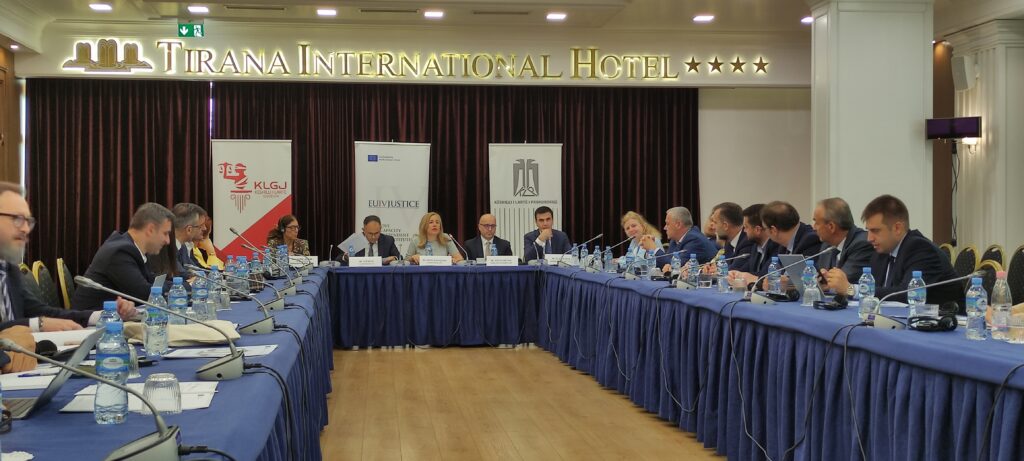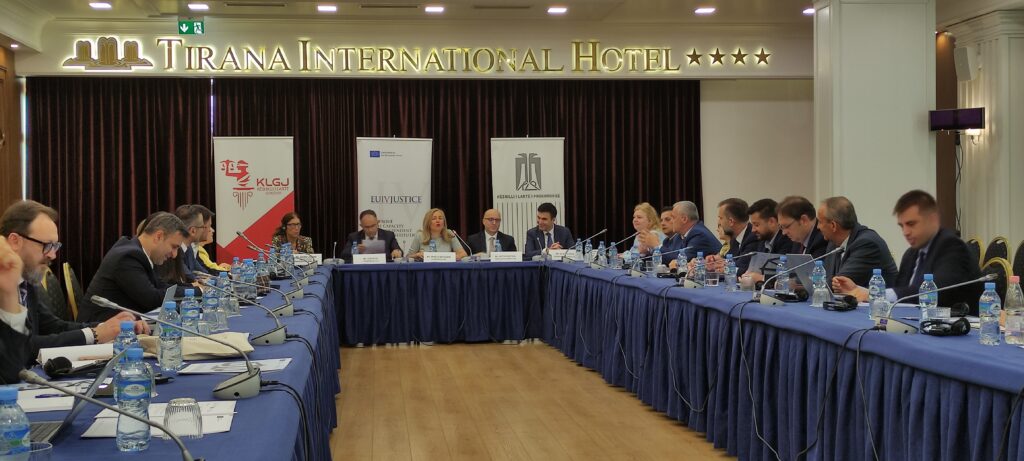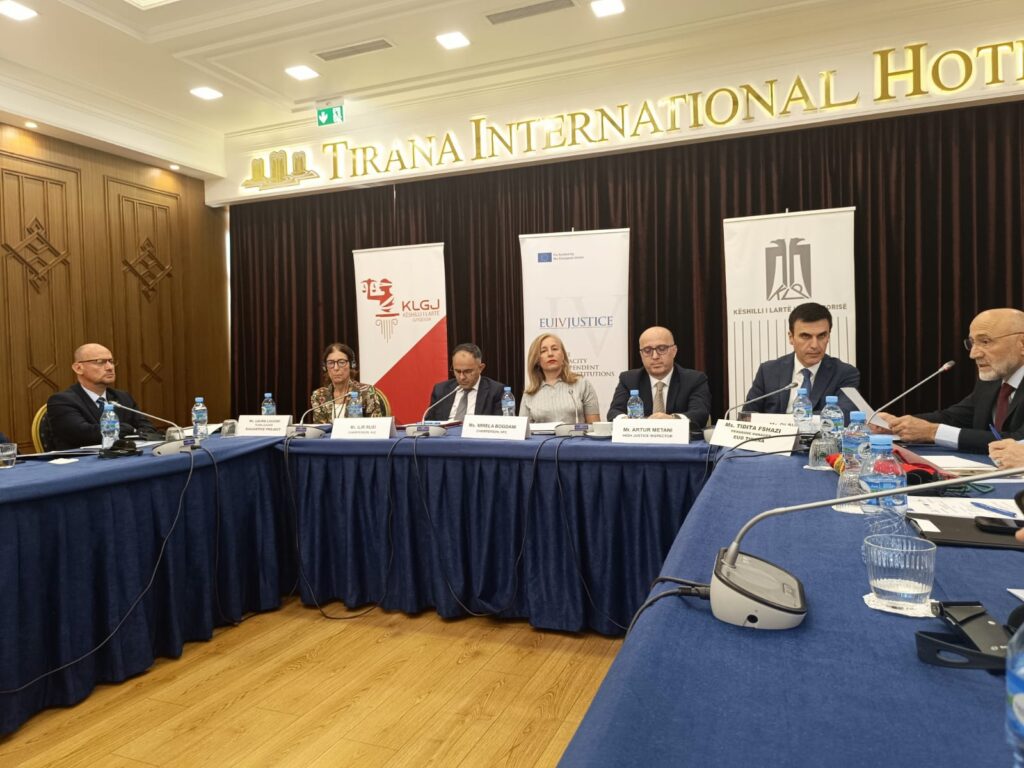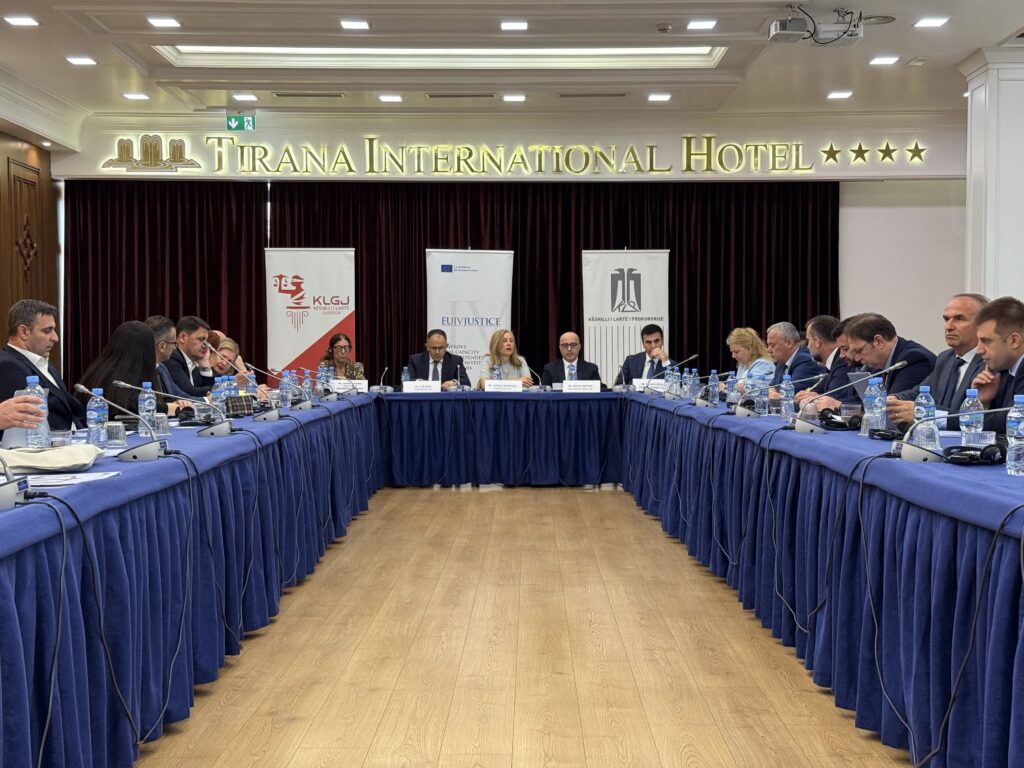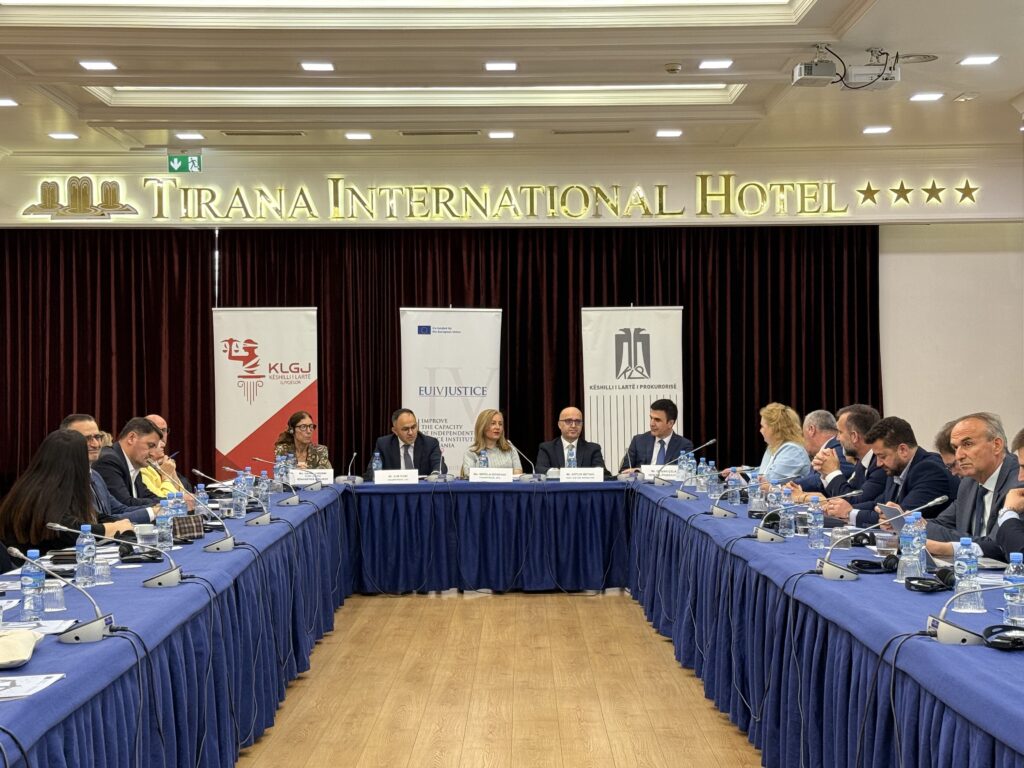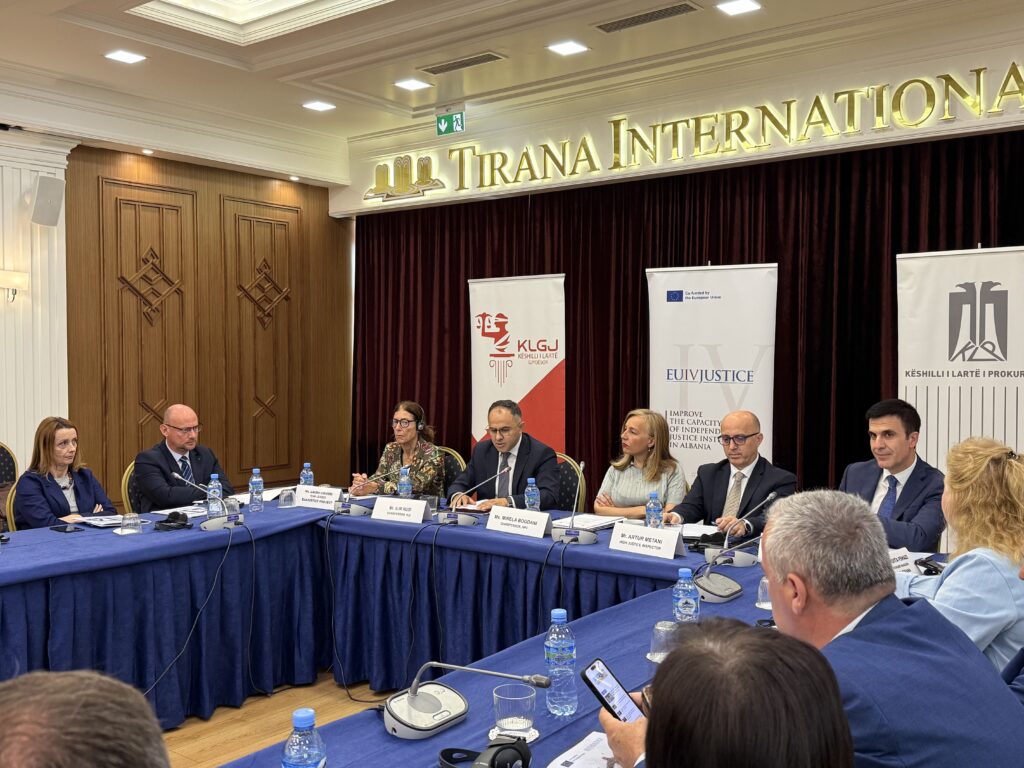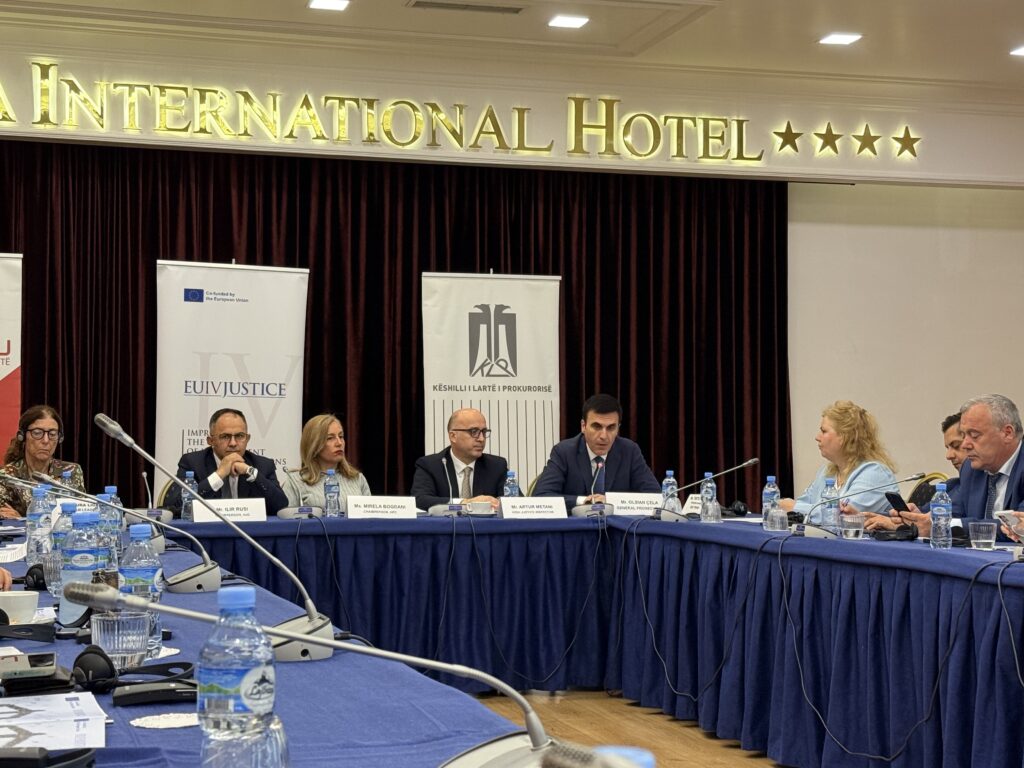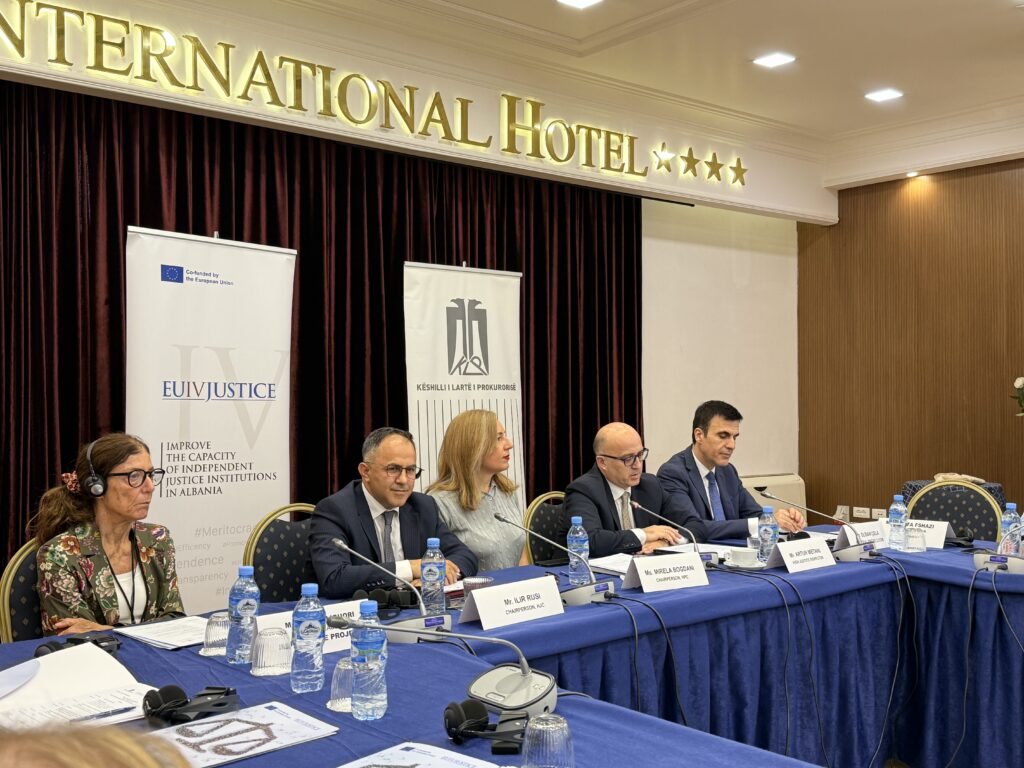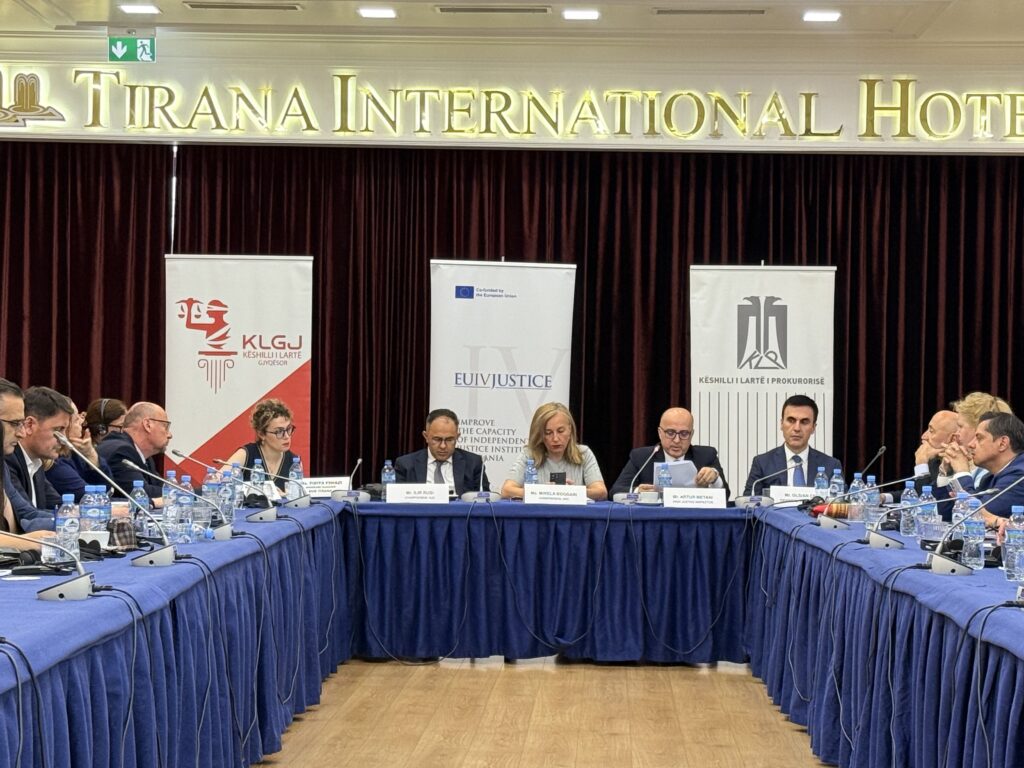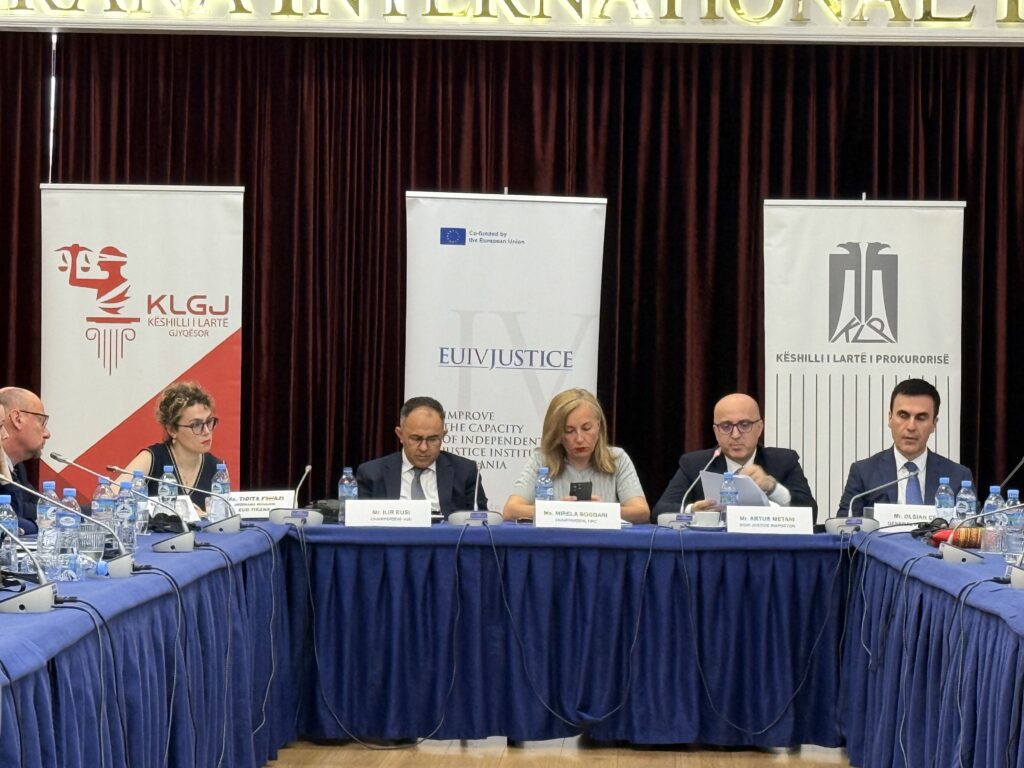- “Abdi Toptani” Street, Torre Drin Building, 10th floor, Tirana, Albania
- info@eu4justice.al
- Call Us : +355 (0) 4 562 0550
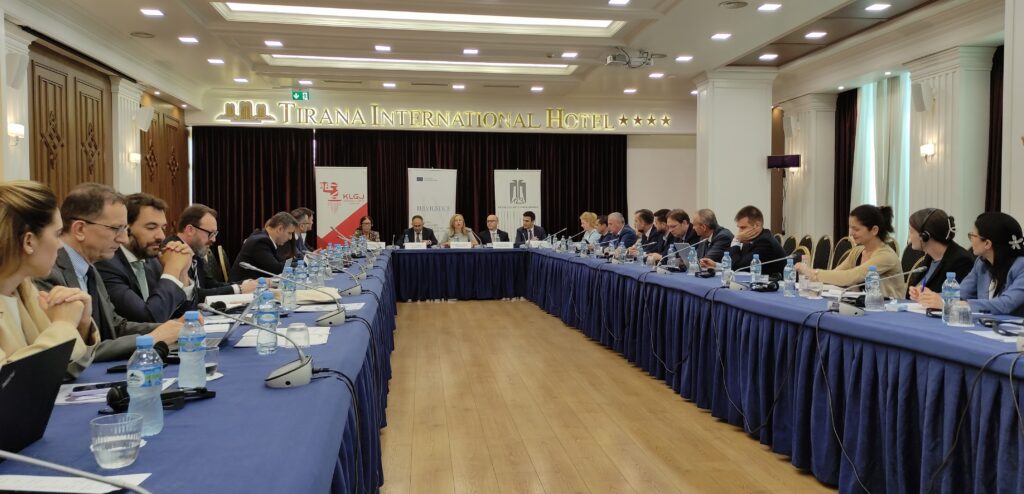
On 11 June 2025, the First Annual Joint Meeting of the High Judicial Council (HJC) and the High Prosecutorial Council (HPC), with the participation of the High Justice Inspector (HJI) and the General Prosecutor (GP), was held in Tirana. Convened by the HPC and organized with the support of the EU4Justice Project, the meeting brought together members of both Councils, the High Justice Inspector, Inspectors from his Office, the General Prosecutor, representatives of the General Prosecution Office and key stakeholders, including the European Union Delegation, the EU4Justice Team, and OPDAT.
The meeting was chaired by Ms. Mirela Bogdani, Chairperson of the HPC, who welcomed participants and emphasized the importance of sustained institutional engagement and constructive dialogue in support of the justice sector reform. In their opening remarks, institutional leaders reaffirmed the value of thematic inspections as an essential tool to strengthen transparency, accountability, and efficiency within the judiciary and prosecution services. Mr. Ilir Rusi, Chairperson of the HJC, underscored the dual importance of inspections from both qualitative and quantitative perspectives and encouraged continued dialogue between institutions. High Justice Inspector Mr. Artur Metani highlighted the strategic shift from inspections focused solely on individual magistrate performance evaluation to broader institutional assessments through thematic inspections. The General Prosecutor, Mr. Olsian Çela underlined the delineation of institutional roles and competences following the transfer of inspection responsibilities from the GPO and stressed the need for coordinated action while reaffirming the constitutional principle of prosecutorial independence.
Participants engaged in a substantive exchange on the current status of thematic inspections, reflecting on their evolution and growing institutional relevance. Mr. Metani presented an overview of key developments, noting that ten thematic inspections had been conducted between 2022 and 2025. Key inspection themes included delays in case management/adjudication and communication gaps in informing parties of alternative dispute resolution (ADR) mechanisms. The resulting recommendations aim to address systemic inefficiencies and strengthen public confidence and trust. A methodology to monitor the implementation of these recommendations is currently under development with the collaboration and support of EU4Justice.
Discussions highlighted the need to further clarify institutional roles, strengthen follow-up processes and mechanisms, develop and establish a coordinated framework to monitor implementation of inspection findings/recommendations. Participants expressed broad support for the establishment of a joint working group and the formalization of periodic joint meetings.
The meeting concluded with consensus on key operational steps. First, the Councils, HJI, and GPO committed to holding regular joint meetings, including biannual sessions of the Councils’ Standing Committees. Second, a formal regulation, complemented by a Memorandum of Understanding, will be drafted with the support of the EU4Justice project to formalize cooperation, define the structure, frequency, and procedural framework of future meetings and reinforce inter-institutional cooperation. These commitments mark a significant step forward in advancing coordination, transparency, institutional dialogue, and shared responsibility to strengthen good governance of the judiciary and the rule of law in Albania.
In this spirit, participants took note that the next joint meeting—to be convened by the HJC with the support of the EU4Justice Project —will take place on the 10th July 2025. The session will be dedicated to the preparation of a joint regulation on vetting procedures based on IMO Regulation, further consolidating inter-institutional cooperation and alignment in the framework of Albania’s justice reform.
Officially launched on February 3, 2023, the project is in its last implementation period and will continue to support the beneficiaries in implementing the justice reform.


